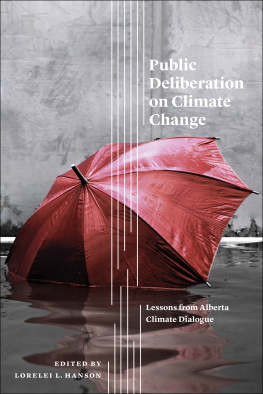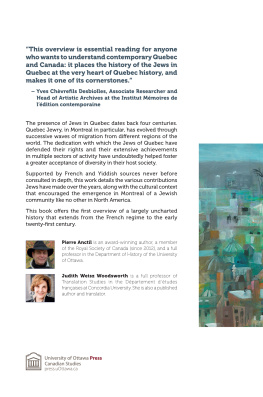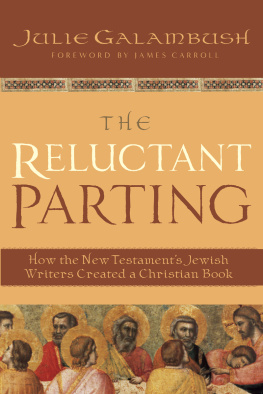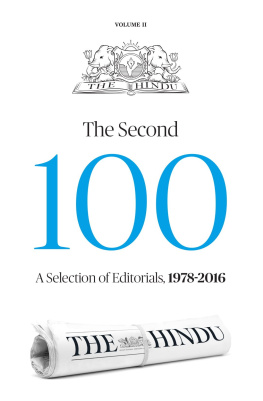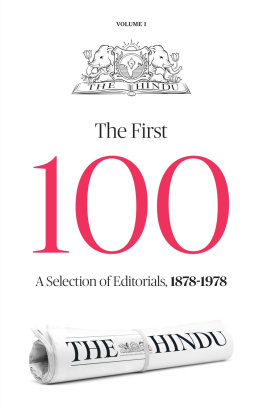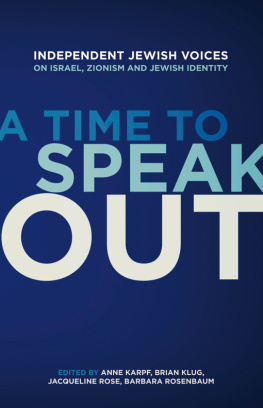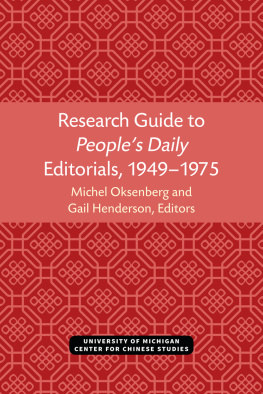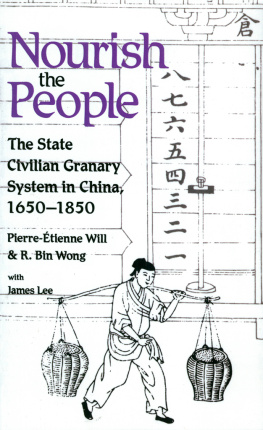Public Deliberation on Climate Change
Public Deliberation on Climate Change
Lessons from Alberta Climate Dialogue
EDITED BY LORELEI L. HANSON
Copyright 2018 Lorelei L. Hanson
Published by AU Press, Athabasca University
1200, 10011 109 Street, Edmonton, AB T5J 3S8
ISBN 978-1-77199-215-2 (pbk.) 978-1-77199-216-9 (PDF) 978-1-77199-217-6 (epub) doi: 10.15215/aupress/7981771992152.01
Cover design by Marvin Harder
Interior design by Sergiy Kozakov
Illustrations by Liisa Sorsa
Printed and bound in Canada by Friesens
Library and Archives Canada Cataloguing in Publication
Public deliberation on climate change: lessons from Alberta Climate Dialogue / edited by Lorelei L. Hanson.
Includes bibliographical references and index.
Issued in print and electronic formats.
1. Climatic changesGovernment policyAlbertaCitizen participation. 2. Climatic changesSocial aspectsAlberta. 3. Discussion. I. Hanson, Lorelei Lynn, 1964, editor
TD171.7.P83 2018 363.70525 C2017-907386-9
C2017-907387-7
This book has been published with the help of a grant from the Federation for the Humanities and Social Sciences, through the Awards to Scholarly Publications Program, using funds provided by the Social Sciences and Humanities Research Council of Canada.
We acknowledge the financial support of the Government of Canada through the Canada Book Fund (CBF) for our publishing activities and the assistance provided by the Government of Alberta through the Alberta Media Fund.
Please contact AU Press, Athabasca University at aupress@athabascau.ca for permissions and copyright information.
This book is dedicated to the hundreds of citizens who so willingly participated in the dialogues, without whom this book, and the research upon which it is based, would not have been possible. We are grateful for the commitment and thoughtful reflection that you brought to the dialogue processes.
Contents
Lorelei L. Hanson and David Kahane
Lorelei L. Hanson
David Kahane and Gwendolyn Blue
Geoff Salomons and John R. Parkins
Shelley Boulianne
Gwendolyn Blue
David Kahane and Lorelei L. Hanson
Mary Pat MacKinnon, Jacquie Dale, and Susanna Haas Lyons
David Kahane
Tom Prugh and Matt Leighninger
Acknowledgements
This book was a collaborative effort in many ways and would not have been possible without the support, participation, and contribution of many, including Vincent Ambrock, Shelley Boulianne, Jacquie Dale, Susanna Haas Lyons, Janette Hartz-Karp, Mikael Hellstrom, Simon Knight, Matt Leighninger, Kristjana Loptson, Mary Pat MacKinnon, Melanie Marvin, John Parkins, Tom Prugh, Alex Ryan, Geoff Salomons, and participants in the 2014 and 2016 NOMIS Workshops on Nature and Value. For constant support and guidance throughout the development of the book, and for his courage, determination, and inspiration to initiate and lead a complex project like Alberta Climate Dialogue (ABCD), a huge thanks to David Kahane. For helping to formulate the framework of the book, and providing project vision and critical feedback, thanks to Gwendolyn Blue. For capturing the work of ABCD in such a beautiful and expressive visual form, thanks to Liisa Sorsa. For her generous assistance in multiple ways, thanks to Deb Schrader. For those who agreed to collaborate with us, and experiment on engaging citizens using public deliberation, appreciation is extended to: the City of Edmonton, especially Mayor Don Iveson and the Office of the Environment (particularly Jim Andrais and Mark Brostrom); Fiona Cavanagh and the Centre for Public Involvement; Jesse Row and the Alberta Energy Efficiency Alliance; and Shannon Frank and the Oldman Watershed Council. I am also grateful for the funding we received from the Social Sciences and Humanities Research Council of Canada, the Award to Scholarly Publications Program, Athabasca University, the University of Alberta, and the Centre for Public Involvement which made the research on public deliberation and this book possible. Finally, thank you to those friends and loved ones who provided encouragement and support over the course of the past year, including Hollee Card, Lynnette Kaminiski, Deb Schrader, Meenal Shrivastava, and most importantly, Desy Sarmiento Flores.
Foreword
The issue of climate change is close to my heart. Since joining Edmonton City Council in 2007, I have been committed to bold action to mitigate greenhouse gas emissions. Addressing emissions not only relates to the broader issue of climate disruption, it also factors into many other health, economic, and quality of life benefits. If Edmontonians want a vibrant, innovative, globally competitive city, we must become a leader on climate change and energy transition.
When The Way We Green plan came before Council in 2011, much of the discussion centered on what kind of engagement we would undertake to move an aspirational catalogue of measures toward implementation. I was enthusiastic when Alberta Climate Dialogue (ABCD) approached me that same year about building a citizen-deliberation process into City decision-making on climate and energy questions. As the Council lead on the Environment portfolio, I reminded my colleagues that on the really tough aspects of climate change we had a rare opportunity to connect with global networks to help a variety of decision-making bodies navigate these problems.
Something municipalities have done effectively in Canada, and around the world, is to lead when there is an absence of leadership from sub-national and national governments. Edmonton City Council understood that a municipality could not alone deliver solutions to emissions for our city, much less our region, province, or country. That said, the majority of Edmonton councillors were comfortable with climate science which gave us an opportunity to make an important progressive statement. With regard to our responsibility for the emissions output from this community, we thought it essential to provide strong leadership where we could.
As an elected representative, I am reassured to know that when a diverse group of citizens is brought together in a room, given the facts and a chance to fully discuss an issue, that group will let you know with a remarkable degree of consensus what ought to be done. As a decision maker, I communicated to Edmonton City Council the deliberative process we were building with ABCD, which we considered a proxy for what citizens, so informed, would come up with. I described how public deliberation was a way to get beyond the issue polarization that we had struggled against, which resulted in overly general discussions of the issues with only directly affected special interests coming forward. We knew that including all relevant interests in the public deliberation was crucial to the success of this process. After all, Edmonton is an industry town with a huge stake in the fossil fuel business. If that perspective had been excluded, we would not have had all the stakeholders in the room and the process could have easily been discredited.
However, our society is more complicated and broadly composed than special interests and industry voices might suggest. It contains people of all age groups, from different cultural, linguistic, religious, and economic backgrounds; folks with various perspectives on these vexing questions. For example, Edmonton will very soon have the largest urban Indigenous population in the country and be the fifth-largest destination for new Canadians. If we do not include individuals and groups that reflect the makeup of our city, then obviously we will miss the mark. The process had to genuinely register the diverse voices of our community to have credibility with the rest of the citizenry.



